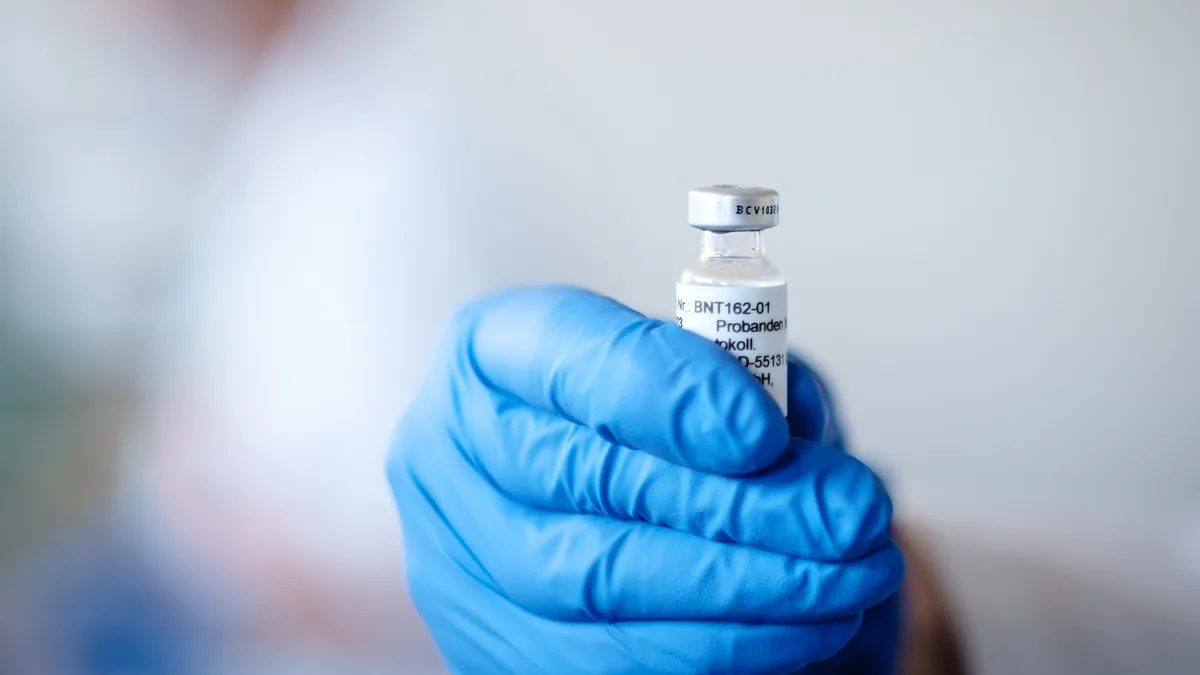Dive Brief:
- If an employer requires that employees receive the coronavirus vaccine, then the time employees spend obtaining the vaccine is most likely compensable under the Illinois Minimum Wage Law and the Fair Labor Standards Act, the Illinois Department of Labor said in a recent guidance.
- The state agency also said in the guidance that employers should allow employees to use state-mandated sick leave to take a qualifying family member to receive the COVID-19 vaccine.
- The state suggested that employers review leave and vaccination policies and revise them to provide "leave, time and flexibility" that would encourage employees to get the coronavirus vaccine.
Dive Insight:
Several employment law attorneys, such as those at Jones Day, have similarly said that the FLSA likely requires employers to pay workers for time spent receiving the vaccine, if the employer requires vaccination.
Many wish to incentivize vaccination instead, but questions remain about employers' ability to make such offers. Still, some are moving forward.
Target is offering free transportation and four hours of pay to hourly workers who choose to get vaccinated. McDonald's has a similar program. Others are offering cash: Kroger workers who get line up for a shot will receive $100, the grocery store has announced.
Incentives might be important steps for employers who want their workforce vaccinated. A survey of 1,000 workers found that, while 53% of respondents said they would agree to get the vaccine, 56% said they would do so if encouraged by their employers. A somewhat higher number — 60% — said they would get the shot if offered a $100 reward by their employers.
Going a step beyond Illinois, New York has mandated paid leave for employees receiving the vaccine. The state's governor signed a bill March 12 that provides up to four hours of paid leave for public and private workers to receive a dose of the COVID-19 vaccine. The law applies to each injection and cannot be charged against sick leave, according to law firm Fisher Phillips. The law expires Dec. 31, 2022.













